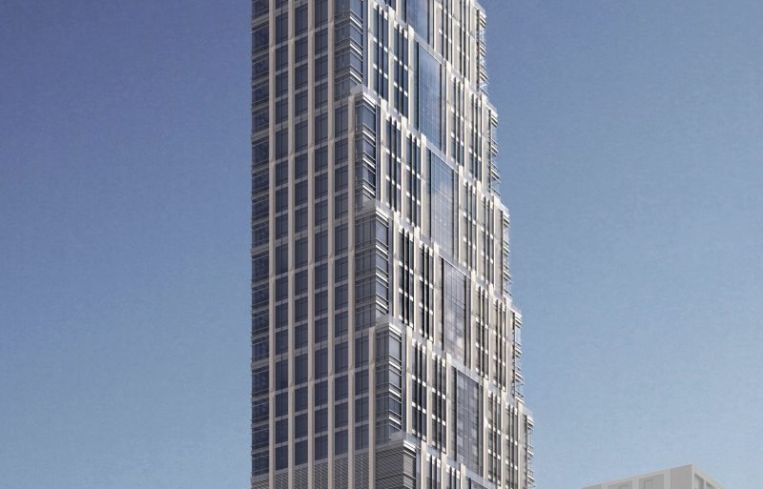City Appeals Ruling to Cut Top Floors of 200 Amsterdam Avenue
“It is the City’s responsibility to fix flawed policy — not the Court’s,” the city claims as it backs developers SJP and Mitsui Fudosan
By Nicholas Rizzi March 4, 2020 3:30 pm
reprints
The City of New York backed the developers of an under-construction Upper West Side condominium tower after a judge ruled it should remove the top floors of the building.
Lawyers for New York City filed an appeal yesterday against a state judge’s decision to revoke the New York City Department of Buildings permits for the 52-story 200 Amsterdam Avenue, which would force the developers to remove the roughly 20 floors that break the area’s current zoning code.
Last month, Judge W. Franc Perry sided with community groups who argued developers SJP Properties and Mitsui Fudosan America improperly “gerrymandered” a 39-story lot to build higher than zoning allows.
“We closed the loophole that allowed the developers of 200 Amsterdam to legally gerrymander a 39-sided zoning lot to construct a luxury tower,” Jane Meyer, a City Hall spokeswoman, said in a statement. “Now, we are challenging the judge’s ruling that the building violated zoning laws. It is the City’s responsibility to fix flawed policy — not the Court’s — and we must appeal this decision because of its far-reaching implications for how policy is shaped.”
The appeal comes a day after the DOB issued a clarification, that was not retroactive, saying newly created zoning lots cannot consist of partial tax lots — a key point of contention in the 200 Amsterdam Avenue case.
Richard Emery, the lawyer for the Committee for Environmentally Sound Development and the Municipal Art Society which opposed the project, said the city’s appeal puts them at odds with the DOB’s clarification.
“I think the decision is very hypocritical to their agency,” Emery said. “It’s kind of outrageous for them to behave this way.”
A spokeswoman for the developers praised the city’s decision to appeal what they feel is a “legally flawed court ruling that seeks to apply a new policy.”
“Zoning regulations should be interpreted and enforced lawfully and transparently through the proper administrative and legislative process,” the spokeswoman said in a statement. “Without that, New York City’s economic growth will suffer at a time when the City is already facing a critical housing shortage. We will continue to vigorously appeal this ruling in partnership with the City and are confident that the facts and justice will prevail.”
In 2016, developers filed plans to build a 668-foot tower on the site of the old Lincoln Square Synagogue between West 67th and West 68th Streets, New York Yimby reported.
The plans were almost immediately faced with fierce opposition from locals over the size of the building and the developers’ use of partial tax lots to get around the zoning code.
“It was a violation of the zoning law,” Emery said. “It was completely out of context for the neighborhood.”
Over the years, opponents filed several lawsuits and motions against the New York City Board of Standards and Appeals for allowing the project to be built, and, eventually, Judge Perry sided with them last month.



